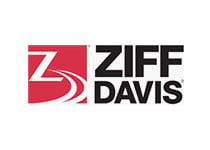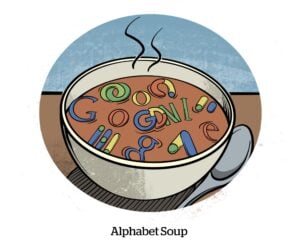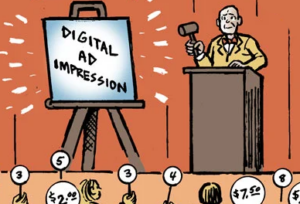 Vivek Shah, CEO of Ziff-Davis, a publishing company focused on the technology and game markets, recently spoke to AdExchanger.com about his company and what he’s seeing from the publisher perspective.
Vivek Shah, CEO of Ziff-Davis, a publishing company focused on the technology and game markets, recently spoke to AdExchanger.com about his company and what he’s seeing from the publisher perspective.
AdExchanger.com: If you had to pick one key, yet little understood, way that media is changing today, what would it be?
VS: I believe that many content publishers on the Internet may be ignoring the opportunity presented by data-driven advertising or even viewing it as a threat to their businesses. We firmly believe in the value of content as a way to not only attract audiences but also as a means to qualify audiences and collect very valuable non-PII data. Mining that data to deliver highly targeted advertising is a perfect complement to selling high-value sponsorships and contextual-based advertising. Marketers are looking for both audience- and contextual-based advertising, yet publishers have not been quick to meet that demand. Instead, the marketplace is in danger of bifurcating: publishers on one side arguing the value of content, and networks on the other side espousing the value of data. We think both are right. To that end, we launched BuyerBase, a data-driven ad targeting platform that reaches 40 million in-market tech buyers per month, as a way to complement our owned-and-operated content sites such as PCMag.com, Geek.com and ExtremeTech.com.
You said recently that publishers may need to consider a commerce component. Why? Is an ad-supported business model unsustainable?
Developing multiple revenue streams has been a hallmark of media business models for a long time. Historically, many media businesses, in addition to advertising, extracted consumer revenues in the form of subscriptions and fees for content. While the Internet has put pressure on that form of revenue, it has unlocked the ability for content publishers to collect commerce revenues from consumers. For instance, we operate a site called LogicBuy.com, which is a leading provider of consumer electronics deals on the web. We sift through thousands of deals each week, including our own exclusive deals, to find the best values in technology for buyers. We present those deals at LogicBuy.com but also strategically distribute those deals across our portfolio of owned-and operated content sites as well as on many partner sites. We have a very loyal audience that trusts our judgment and relationships with OEMs and online retailers that allow us to be a strong source of transactions. Many publishers have similar characteristics that could be woven into meaningful commerce businesses.
How about technology? Should publishers, media companies own their own technology?
In our business, technology is critical to the development and presentation of content, as well as the placement of advertising. Technology also powers our BuyerBase platform in which we collect, score and organize over 1 billion buying signals per month across 40 million buyers visiting 150 sites. Whether we need to build, buy or rent technology is a question we ask on a case-by-case basis. We’ve done all three and it generally it comes down to speed, flexibility, cost and the ecosystem in which we operate. For instance, while we have a home-grown content management system, it made little sense to have a proprietary ad server when the marketplace already operates around a few common systems. With BuyerBase, we developed a very close partnership with Demdex, which was recently acquired by Adobe’s Omniture unit, to develop some of the technology we needed to build that platform. Whether or not they own technology, digital publishers need to truly understand technology.
What’s left to solve as it relates to data? For example, are you comfortable with the valuation of your data? And, does Ziff Davis have a publisher “data stack” if you will?
We think that data and audience insights as ways to power huge pools of online ad inventory is a major disruptive force in marketing. While the concept of using data to target advertising is not new, the massive volume of impressions that are now available in RTB platforms is. We now have a large, liquid market where impressions are bought and sold in real-time and the demand, therefore, for data to inform those exchanges is significant. Not all data, of course, is of equal value. In Ziff Davis’ case, we have a vast amount of data on individuals who are in the purchase funnel. Because of the complexity and price points involved in technology purchases, buyers routinely research their options online, making our BuyerBase data pool very robust and valuable to marketers.
Our model is not to sell data, but to leverage it to sell advertising. This allows us to deliver a full-service solution to our clients while maintaining data integrity and exclusivity. If too many marketers target the same individuals at the same time with similar messages based on the same data, then that very data quickly becomes less effective. In addition, the price of inventory targeting those individuals gets bid up. That’s a risk a data provider runs by making their data too widely available. With BuyerBase, we are the only entity using our data and we manage it carefully to prevent dilution.
By John Ebbert











